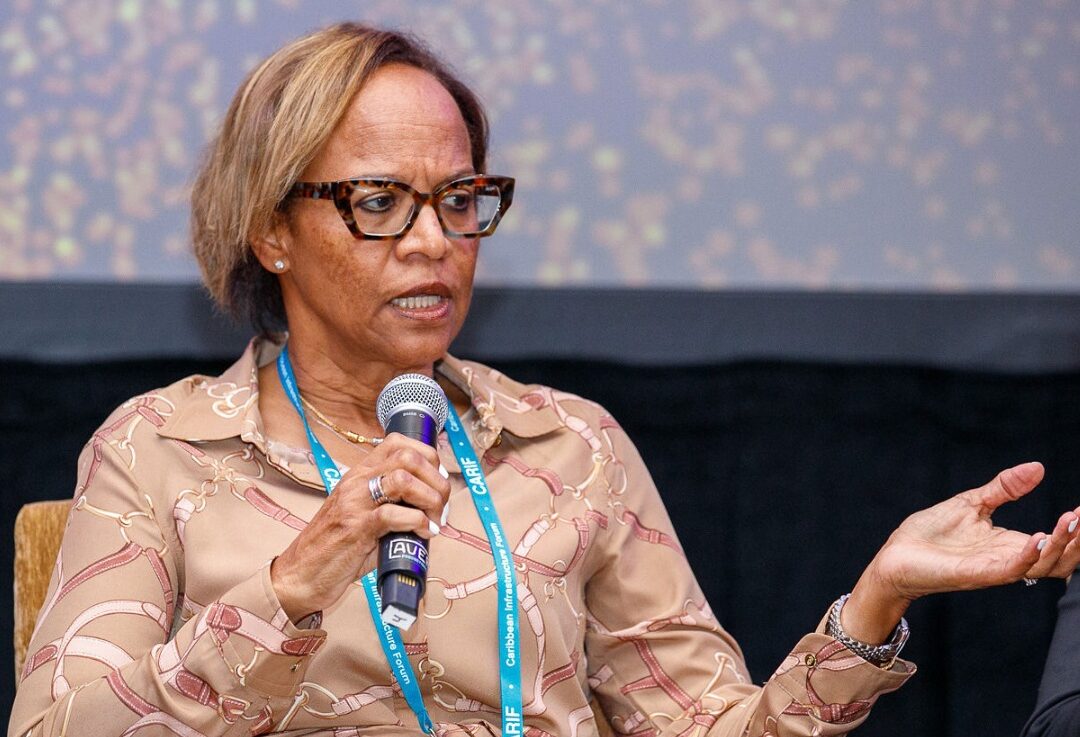Barriers to Private Sector Investment in Renewable Energy Sector in Barbados and Caribbean States: Experts Identify Challenges and Solutions

The absence of clear terms and conditions, small project sizes, and weak government implementation are identified as obstacles to private sector investment in the renewable energy sector in Barbados and other Caribbean states.
The absence of clearly outlined terms and conditions, the small size of projects and weak implementation by governments, have been identified as some of the main obstacles to Barbados and other Caribbean states attracting more private sector investment in the developing renewable energy sector.
The barriers were highlighted on Thursday, day two of the three-day Caribbean Energies and Investment Forum which is being held at the Lloyd Erskine Sandiford Centre under the theme Sustainable Energy Paths for the Caribbean.
Director of Projects at the Caribbean Development Bank (CDB) Therese Turner-Jones argued that “the absence of a clear playing field is making it difficult for the private sector to enter the space”.
“Unless the private sector knows what is expected of them, what the government is putting in place in terms of regulation, it makes it very difficult to do business,” she warned.
Turner-Jones, who was speaking during a panel discussion on the topic Financing Resilience and Climate Adaptation – the Role of Governments and Multilaterals, said investors expected that things would be done within the promised timeframe, and they wanted policies clearly outlined for the sector.
“We need to talk about procurement policies – . . . which renewable energy products make sense in the particular country that we are dealing with. We need to know about the pricing; we need to know, is it going to change over time, what are the variables that change the tariffs over time,” she said.
“I think the private sector wants that bare minimum in terms of an environment to say ‘yes, I want to do business in the electric mobility field, in the solar field or in any other area that we think is important to evolving the sector’.”
Director for the Caribbean Region with the World Bank Lilia Burunciuc said that in a recent World Bank study in the Organisation of Eastern Caribbean States (OECS), several barriers to investment in the sector were identified.
In addition to the lack of adequate policies and regulations that made it “difficult” to attract investment, the size of projects was simply unattractive due to their small size.
“What is the solution here? Work regionally, do things regionally and make sure that your regulations are all compatible,” advised Burunciuc.
She also indicated that the market risk perception was another obstacle, as well as the lack of modern national grids that are able to readily accommodate electricity from renewable energy sources.
“The need to upgrade the existing infrastructure, the grids – this is actually one of the key concerns,” the World Bank official said.
Recently, officials of the Barbados Light & Power Company (BLPC) warned that the national grid was running out of space to accommodate electricity from solar photovoltaic, which stood at about 89 megawatts or the current 100-megawatt capacity limit as of September this year.
The utility company noted that it was seeking to invest some $600 million in building out its infrastructure, which would also include battery storage, but it was awaiting a ruling from the Fair Trading Commission on its application made under its Clean Energy Transition Rider mechanism.
Stating that there were other hurdles to investment in the sector in the Caribbean, Burunciuc said authorities in the region “actually know what needs to be done”.
“The problem is that they are still not able to come up with bankable projects that could be realised,” she said, noting that the private sector and funding agencies were ready to invest in large projects.
During her submission, Burunciuc also indicated that “weak implementation ability” by authorities is also a hindrance.
“Our very analysis has shown that the lack of capacity in the Caribbean; lack of skills that are needed to operate the new systems is a barrier that needs to be overcome,” she said, adding that the World Bank has already started to work with some countries in the region to overcome the challenges and has also been providing financial and technical assistance for several projects. (MM)


